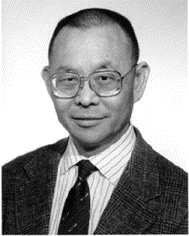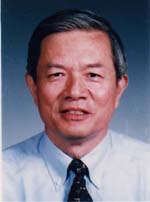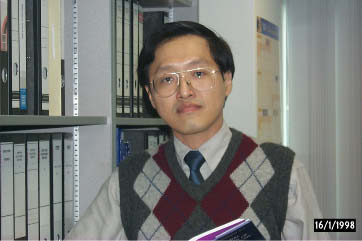

Plenary Speech
|
Automation plays an increasingly important role in life sciences. The wide-range applications of life science automation include genomics and proteomics automation, drug delivery system automation, cell and tissue manipulation automation, and medical automation. A key component for the above automation system development is the control mechanism design. For example, controlled drug delivery systems pursue precisely drug targeting and releasing. This obviously requires advanced control instead of conventional open-loop control schemes. Cell and tissue manipulation systems demand control mechanisms that are reliable and robust for micro- and nanoscale manipulation. Surgical robots for medical automation require advanced control methods for real-time complex mechanism control. In this talk, we will present a new event-based two degree-of-freedom control method for micro-/nanoscale systems based on differential flatness. Compared with traditional time-based feedback control, the proposed method shows great potential in dealing with measurement noise and unexpected disturbances. Applications to drug delivery and electroporation-mediated gene delivery demonstrate the promising robustness of the approach. Dr. Tarn is currently a Senior Professor in the Department of Electrical and Systems Engineering at Washington University, St. Louis, USA. He also is the director of the Center for Quantum Information Science and Technology at Tsinghua University, Beijing, China. An active member of the IEEE Robotics and Automation Society, Dr. Tarn served as the President of the IEEE Robotics and Automation Society, 1992-1993, the Director of the IEEE Division X (Systems and Control), 1995-1996, and a member of the IEEE Board of Directors, 1995-1996. He is the first recipient of the Nakamura Prize (in recognition and appreciation of his contribution to the advancement of the technology on intelligent robots and systems over a decade) at the 10th Anniversary of IROS in Grenoble, France, 1997, the recipient of the prestigious Joseph F. Engelberger Award of the Robotic Industries Association in 1999 for contributing to the advancement of the science of robotics, the Auto Soft Lifetime Achievement Award in 2000 in recognition of his pioneering and outstanding contributions to the fields of Robotics and Automation, the Pioneer in Robotics and Automation Award in 2003 from the IEEE Robotics and Automation Society for his technical contribution in developing and implementing nonlinear feedback control concepts for robotics and automation, and the George Saridis Leadership Award from the IEEE Robotics and Automation Society in 2009. In 2010 he received the Einstein Chair Professorship Award from the Chinese Academy of Sciences and the John R. Ragazzini Award from the American Automatic Control Council. He was featured in the Special Report on Engineering of the 1998 Best Graduate School issue of US News and World Report and his research accomplishments were reported in the “Washington Times”, Washington D.C., the “Financial Times”, London, “Le Monde”, Paris, and the “Chicago Sun-Times”, Chicago, etc. Dr. Tarn is a Fellow of IEEE and an IFAC Fellow. |
|
The presentation will discuss and prospect the past 30 years and future 20 years of Chinese industry informationization from a view of that a country how to develop and strong in a globalization environment. The 8 technological aspects in industry Informationization: embedded systems, collaborative product design supported by network, IT in management and decision making, industry control systems, measurement technology and instruments, integration technology, service information systems, IT for energy saving and pollution reduction. Some academic issues are also pointed in this talk, such as optimization problems and complex problem solving. Cheng Wu is a professor of department of Automation, Tsinghua University. He graduated from Dept.of Electrical Engineering and graduate school of Tsinghua University in 1962,1966 respectively. From 1981 to 1983, as a post doctorial fellow he did research work at Case Western Reserve University, USA. Since 1986,he was involved in China national high-tech Program (863 program) in strategic planning and implementation. He was as a director of expert committee in CIMS and Chief Scientist of Automation Technology area. He also have been as a chief scientist of 973 project “Real-time and Intelligent control optimization theory and methods for complex industry process and manufacturing systems”. His research interests are modeling and optimization, IT applications in manufacturing systems. He was elected as a member of Chinese Academy of Engineering in 1995. |
|
This presentation will firstly, consider general recent developments in intelligent automation, mechatronics and systems; and then more specifically, consider the development of an intelligent and hybrid control structure for a group of cooperative Unmanned Aerial Vehicles (UAVs), which covers the control sub-module interactions, and captures the discrete nature of the decision making unit and continuous evolution of the system collectively. To achieve such a goal which has rather mixed hybrid/switched systems constituents, the development uses two parts: first, the hybrid modeling and control of a single UAV is established; and next, the development then deals with the team behavior of several UAVs in formation. To construct such a hybrid model of a single UAV, we develop a semi-linearized model of a UAV helicopter, and establish an effective multi-layer low-level controller for the UAV helicopter, using the H-Inf control-design technique in the inner-loop and employing a decentralized feedback controller combined with non-linear compensation in the outer-loop. This suitably novel approach for the design of the outer-loop controller of the UAV provides rather successful flight control at this first-level. Using this model, we then develop a hierarchical hybrid controller for the single UAV stage, which consists of three layers: regulation layer, coordination layer, and supervision layer. Next, a suitably new approach of hybrid supervisory control of the UAVs is developed for leader-follower formations, within a cooperative scenario. Such an approach is able to comprehensively capture the internal relations between the path-planner dynamics and the decision-making unit of the UAVs. In the design for such a hybrid supervisory controller for the formation problem, a method of abstraction, based on polar-partitioning of the state-space, is introduced. Then, the properties of the multi-affine vector fields over the polar partitioned space are utilized. Within this framework, a modular decentralized supervisor in the path-planner level of the UAVs is then designed to achieve two major goals: first, reaching the formation; and second, keeping the formation. In addition, an inter-collision avoidance mechanism is embedded in the controller structure. Additionally, various other recent new developments in intelligent automation, mechatronics and systems will be discussed. T. H. Lee received the B.A. degree with First Class Honours in the Engineering Tripos from Cambridge University, England, in 1980; and the Ph.D. degree from Yale University in 1987. He is a Professor in the Department of Electrical and Computer Engineering at the National University of Singapore (NUS); and also a Professor in the NUS Graduate School, NUS NGS. He was a Past Vice-President (Research) of NUS. Dr. Lee’s research interests are in the areas of adaptive systems, knowledge-based control, intelligent mechatronics and computational intelligence. He currently holds Associate Editor appointments in the IEEE Transactions in Systems, Man and Cybernetics; IEEE Transactions in Industrial Electronics; Control Engineering Practice (an IFAC journal); and the International Journal of Systems Science (Taylor and Francis, London). In addition, he is the Deputy Editor-in-Chief of IFAC Mechatronics journal. Dr. Lee was a recipient of the Cambridge University Charles Baker Prize in Engineering; the 2004 ASCC (Melbourne) Best Industrial Control Application Paper Prize; the 2009 IEEE ICMA Best Paper in Automation Prize; and the 2009 ASCC Best Application Paper Prize. He has also co-authored five research monographs (books), and holds four patents (two of which are in the technology area of adaptive systems, and the other two are in the area of intelligent mechatronics). He has published more than 300 international journal papers. Dr. Lee was an Invited Panelist at the World Automation Congress, WAC2000 Maui U.S.A.; an Invited Keynote Speaker for IEEE International Symposium on Intelligent Control, IEEE ISIC 2003 Houston U.S.A.; an Invited Keynote Speaker for LSMS 2007, Shanghai China; an Invited Expert Panelist for IEEE AIM2009; an Invited Plenary Speaker for IASTED RTA 2009, Beijing China; an Invited Keynote Speaker for LSMS 2010, Shanghai China; an Invited Keynote Speaker for IASTED CA 2010, Banff Canada; an Invited Keynote Speaker for IFTOMM ICDMA 2010, Changsha China; and an Invited Keynote Speaker for ICUAS 2011, Denver USA. |

 Organization
Organization

